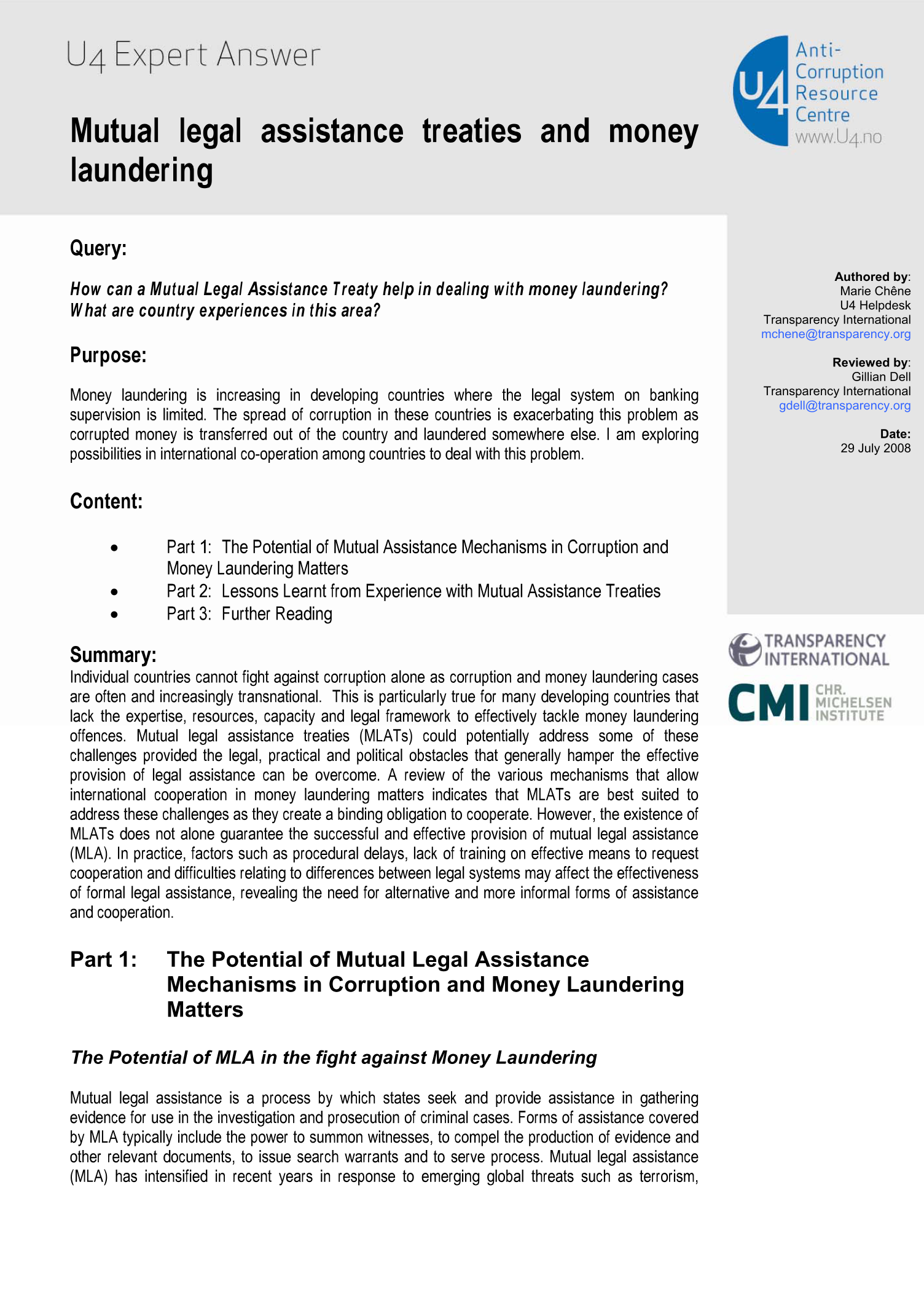U4 Helpdesk Answer
Mutual legal assistance treaties and money laundering
Individual countries cannot fight against corruption alone as corruption and money laundering cases are often and increasingly transnational. This is particularly true for many developing countries that lack the expertise, resources, capacity and legal framework to effectively tackle money laundering offences. Mutual legal assistance treaties (MLATs) could potentially address some of these challenges provided the legal, practical and political obstacles that generally hamper the effective provision of legal assistance can be overcome. In practice, factors such as procedural delays, lack of training on effective means to request cooperation and difficulties relating to differences between legal systems may affect the effectiveness of formal legal assistance.

Cite this publication
Chêne, M. 2008. Mutual legal assistance treaties and money laundering . Bergen: U4 Anti-Corruption Resource Centre, Chr. Michelsen Institute (U4 Helpdesk Answer Helpdesk)
Disclaimer
All views in this text are the author(s)’, and may differ from the U4 partner agencies’ policies.
This work is licenced under a Creative Commons Attribution-NonCommercial-NoDerivatives 4.0 International licence (CC BY-NC-ND 4.0)